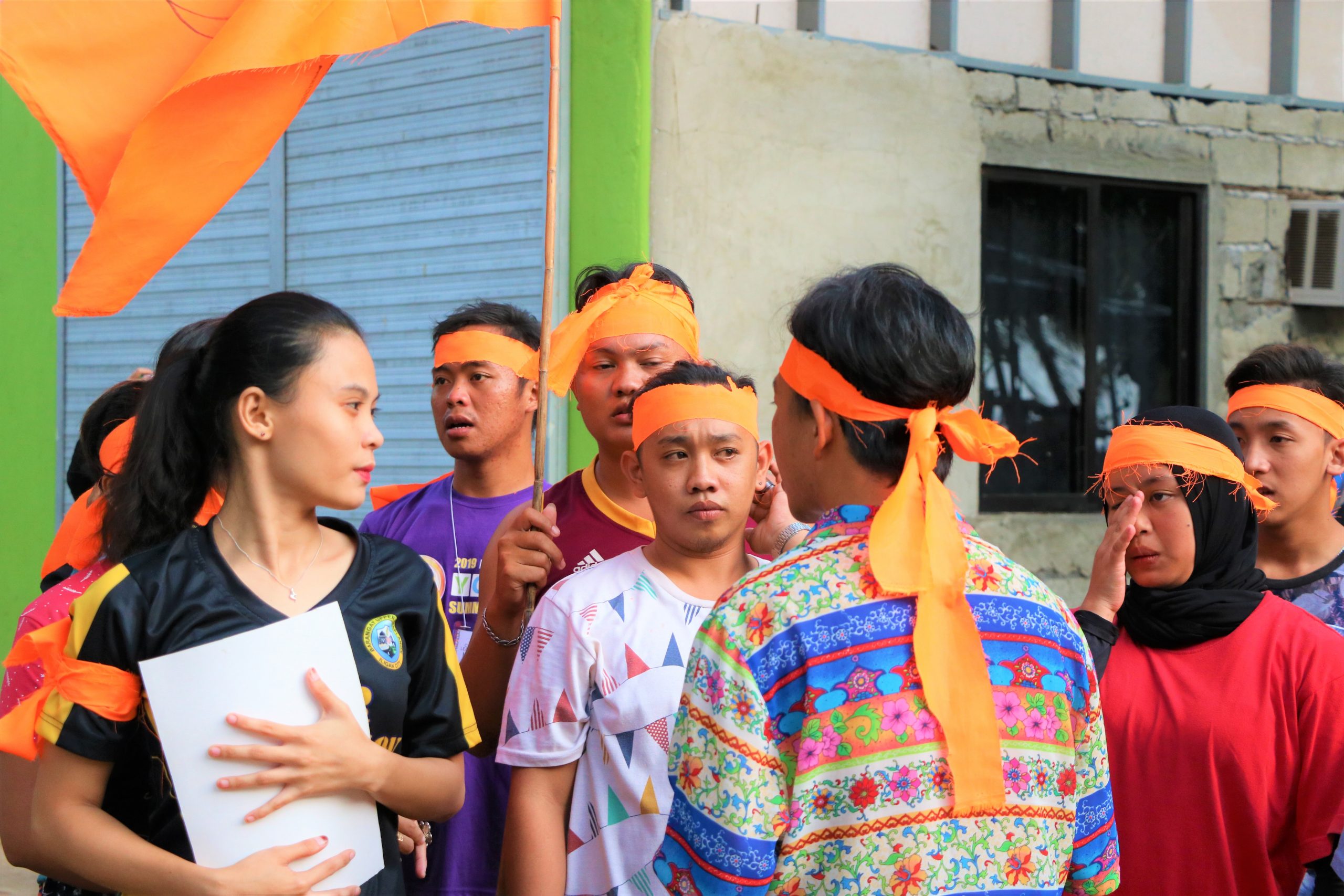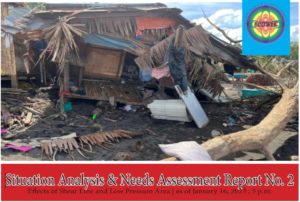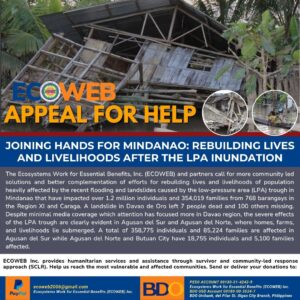Every day, around the globe, everyone is mandated to wear a face mask which has led to an immense demand of surgical face mask production.
The United Nations Conference on Trade and Development (UNCTD) quoted that the face mask worldwide sales will surge to a total of 8.043 trillion peso ($166) in 2020, up from 38.7 million ($800) in the year of 2019.
The continuing battle against pandemic urged the World Health Organization (WHO) to encourage countries with face mask industries to increase production by 40% to meet the persistent demand around the globe. The rising demand is rooted from the WHO modelling of an estimated 89 million medical face mask each month.
In the Philippines, Department of Trade and Industry (DTI) Secretary Ramon Lopez projected a 1.2 billion increase per month.
Behind this skyrocketing demand shadows an environmental concern that the globe pays less attention with. This is the problem on the enormous amount of plastic pollution severed by the improper disposal of face masks. The United Nations Environment Programmes (UNEP) expected that around 75% of used personal protective equipment (PPE) including face masks will end up in both land and water which could definitely affect biodiversity and tourism.
A noticeable statement from EcoWaste Coalition, an environmental health group in the Philippines, warned Filipinos about the uncontrolled-irresponsible disposal of single-use face masks. While the masks protect people from COVID-19, it on the other hand, poses danger to aquatic life.
Women’s strive for initiative amid pandemic
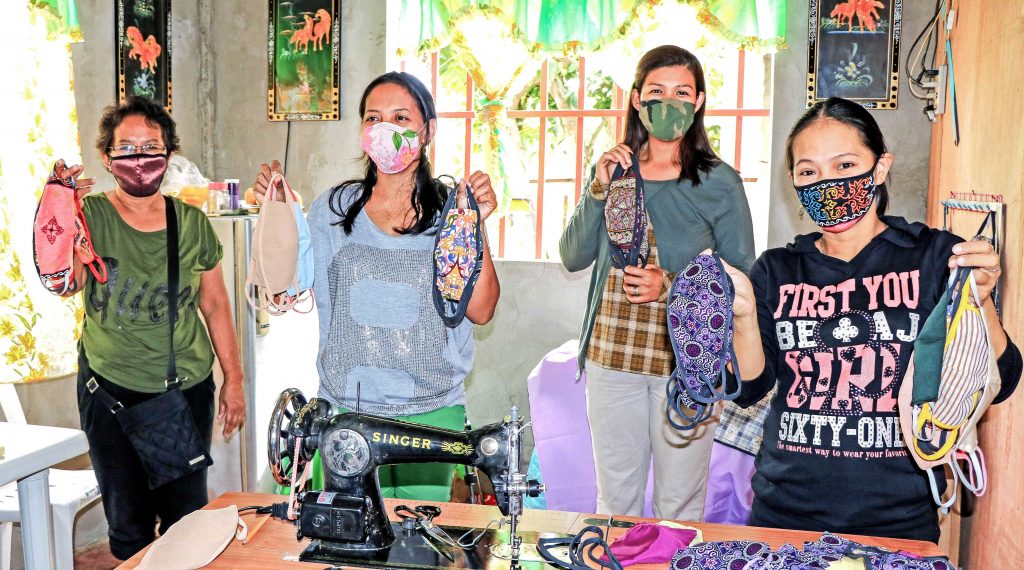
“Fighters”, an all-women community solidarity group and internally displaced persons from Marawi City, currently reside in Tomas Cabili, Iligan City advances their interest in voicing sustainable resource use, together with the said waste and pollution watchdog group.
Under the Marawi Response Project of ECOWEB, Plan International, and USAID, the group received their dressmaking livelihood through the improvement of economic conditions component of the project, which includes sewing machine, sewing kits and materials, and textiles. The group has identified this specific endeavor to improve their living conditions since the Marawi crisis.
Now, the members of the group said that the provision of such livelihood is very timely as they face financial crisis amid the current health outbreak. They survived from Marawi siege and they thought that their lives would be better, not until COVID-19 confronted them.
“A lot of aspects in our everyday life are affected by the COVID-19 and one of which is the family’s daily needs. My husband lost his job and now, we barely provide all the needs of our children.” said Michelle Barrientos, 37 years old, CSG leader, and an IDP from Raya Madaya, Marawi City.
At the onset of the city-wide quarantine implementation, Iligan City is in solidarity with the rest to declare the need to wear face mask both in public and private settings. With this, the group saw an opportunity to maximize their skills and the resources present to produce and sell face masks. All of the materials especially the fabric provided by the MRP was utilized and made income out of it.

Profit slowly rocketed as the government mandated people to always wear face mask. The CSG earned 10,000 pesos from using all of the materials provided by the project. The group managed to roll their money and buy materials for the continuity of the production.
The generated income from the face masks now serves as the main source of their daily expenses. Aside from contacting direct customers, some members also ventured social media advertisement to reach more customers.
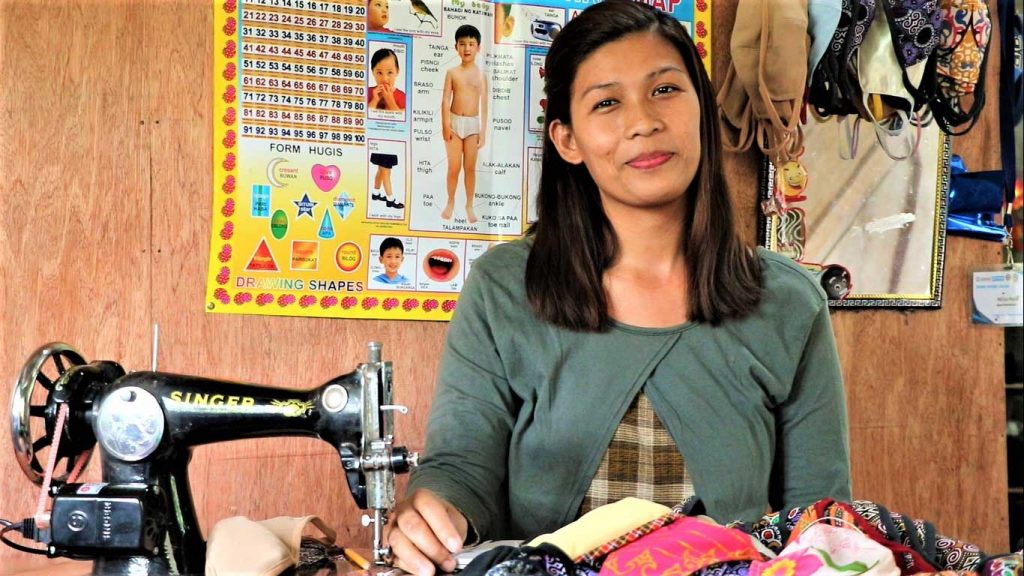
The CSG provided specifications as to how their face masks should be tailored. CSG leader, Mary Grace Sobillano, 36 years old, an IDP from Lumbaca Madaya, ensured that their face masks are based on the person who will use it regardless of the gender orientation and age. They make sure that it is reusable and that customers’ money are not wasted.
“Masks were designed to fit perfectly with the face structure that would maintain the safety of the user. The quality is durable, at the same time breathable. We will continue doing this as much as we could, not just to help ourselves and our families, but also for all the people who need our craftsmanship. ” she said.
The first thing that the CSG considered was the quality of the fabric that it does not provide discomfort when touched to the skin. The group is so much blessed because no day that they ended up zero. Face masks are sold every day since the demand goes higher as preventive measures in all cities get tighter.
Local capacity and safeguarding environment
Producing reusable or washable face mask is CSG’s one way of promoting environmental protection. The irresponsible disposal of surgical face masks alarms not only the environmental advocates but also the families who take tight precautionary measures. Improperly disposed masks can be played by children who can transmit virus to them.
Beverly Joy have seen surgical masks everywhere and even in news. One local source of this information was when the Department of Health through Health Undersecretary Maria Rosario Vergeire, recommends the use of improvised masks by those outside health care facilities including washable face mask.
The pandemic does not only slides humanity in danger but also the environment as a whole. The CSG fears that as long as the pandemic takes place, the demand of surgical face masks reciprocates. They urge people to patronize local products so as to support and empower local capacity. While people help people, the interrelationship of humanity and environment should be stored.
Iligan City is currently under Modified Enhanced Community Quarantine. People are expected to be at home and refuse from wandering for non-essential matters, hence, strictly implementing home quarantine. This implementation helps the environment from people excessively disposing surgical face masks. However, with all due safety measures, family members are encouraged to still wear face masks even to activities performed in their communities such as buying essentials from grocery stores, backyard gardening, fetching water from a communal source, and to any activities which involve interacting with others.
The CSG highly advocates of using washable face masks just like their product. Using such material still guarantees the safety of people. The group does not hinder one from buying and using surgical face masks, but they encourage for a fair share to the environment even though everyone’s primary focus is their health.
“It is just right to take considerations of all things affected by this pandemic. As everyone progresses, nothing and no one should be left behind.”
The CSG caters orders by piece or bulk. Face masks order in bulks are made-to-order since materials are not always available. If you wish to contact, you can reach them through Beverly Joy Sabellano’s Facebook account or through ECOWEB’s contact numbers +63 (063) 228-9617; (+63) 917-723-0396 and social media accounts.


